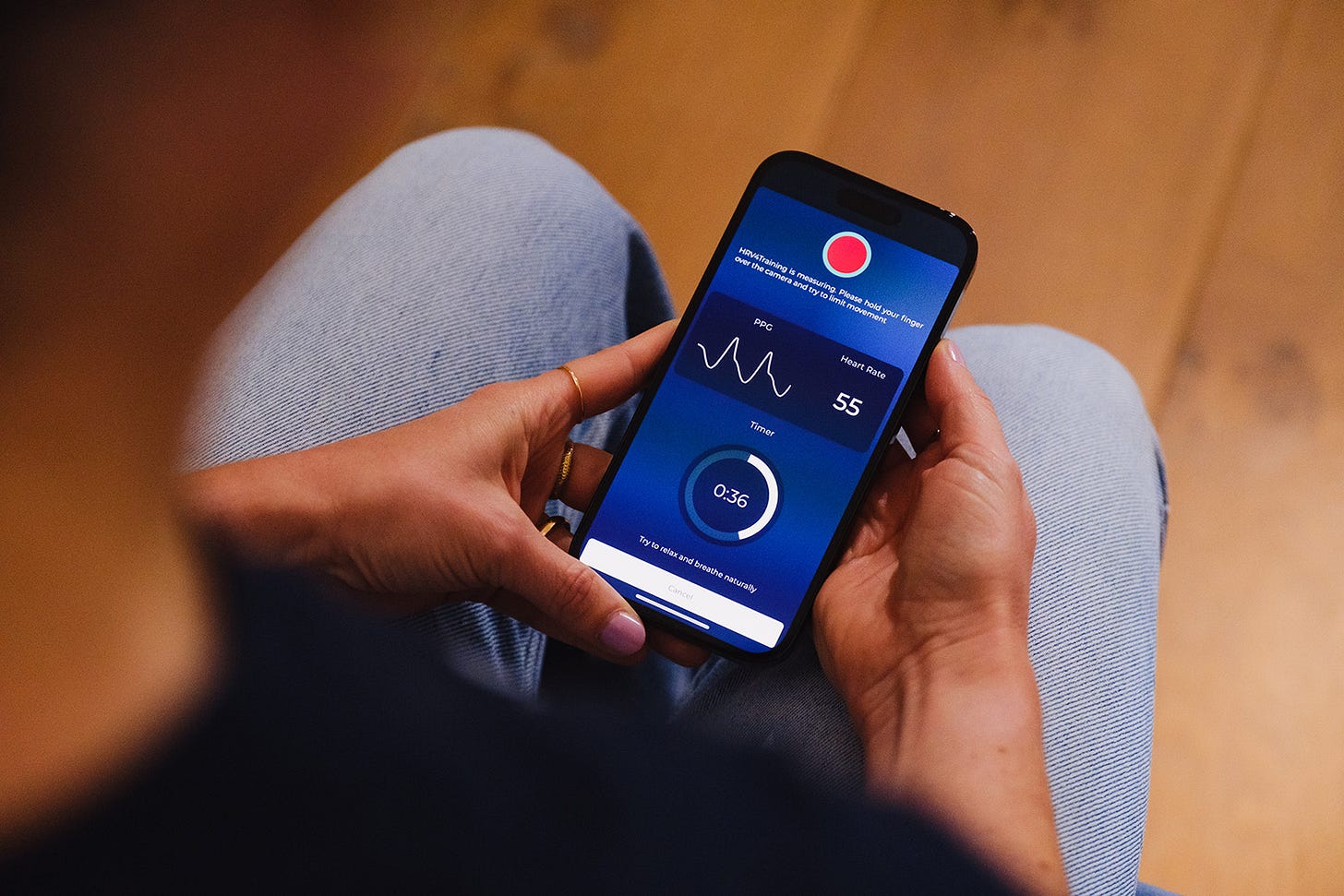[Q&A] if my overnight physiology is better does this mean I'm actually better recovered?
A few words about temperature regulation, HRV and recovery
I have received the question above via our HRV4Training customer channel, and found it quite an interesting one to address here in my new series of Q&A blogs on Substack.
In particular, the question refers to temperature regulation during the night. Here is the full question:
I recently picked up a more powerful ChiliPad (the dock pro) and I've been amazed at how much better my HRV is as a result.
I'm curious: given that my overnight physiology is better (as a result of improved sleep hygiene) does this mean I'm actually better recovered each day?
In other words, if we hold subjective assessment constant but the objective data improves as a result of better temperature regulation, what implications does this have on our actual physiology?
I think this is such a good question, but without a clear-cut answer.
First of all, there is a link between (colder) temperatures and HRV (which is not necessarily associated with recovery). At the mechanistic level, when exposed to colder temperatures, peripheral blood vessels constrict (vasoconstriction, which helps preserve body heat by limiting blood flow to the periphery / skin), which is a sympathetic nervous system response. However, as a result of vasoconstriction, the baroreflex gets activated.
The baroreflex is a system that tightly controls the relationship between blood pressure and heart rate. As vasoconstriction increases blood pressure, heart rate is reduced, to maintain homeostasis - a state of balance and optimal functioning. The reduction in heart rate, due to increased vagal (parasympathetic) activity, causes HRV to increase. At the same time there is a thermoregulatory response: as the body tries to conserve energy and heat, increased parasympathetic activity helps slow down heart rate, once again contributing to higher HRV.
These changes in resting physiology have been analyzed in many studies looking for example at cold water immersion, cryotherapy, or simply exposure to the cold. Lowering the temperature of your room or mattress might cause a similar (but likely smaller) response, therefore increasing your HRV acutely.
While the change in HRV is typically transitory (e.g. your cold water immersion session won’t maintain your HRV elevated until the following morning), this differs if we measure while exposed to a colder environment (e.g. we measure in the night, while temperature is being manipulated). As it often happens, it would be more informative to see what is the state of our physiology after waking up, maybe in a different room, with a morning measurement.
Alright, hopefully so far we’ve figured that it is perfectly normal to see acute changes in HRV when exposed to a colder environment, but what about recovery?
In terms of the acute response, it could be that the improved HRV is part of a transitory phase in which the body perceives a difference (e.g. in temperature) which might be positive, but then we adapt to the new state and things stay the way they are or even revert to the previous state / value. This is why I think it is always a good idea to keep monitoring for a while, and not get overly excited about transitory changes (the body adapts to pretty much anything), even without getting into other possible confounders (e.g. other stressors or lack of stressors, possibly driving the changes that we are seeing, or not seeing).
Even if the physiological profile remains 'better' (oversimplifying, a slightly higher HRV and lower heart rate), it is difficult to associate anything to absolute values, hence the ultimate test to determine if we are recovering better for me would always be looking at relative changes in response to stressors.
For example, how are we coming back from a specific stressor (e.g. training)? Is our HRV more stable over time when lowering night temperature? (keep in mind that stability is the goal, as discussed here).
These are things we can experiment with at the individual level, which might answer the question above.
In my view, a better way to look at this could be to assess morning physiology, taking temperature regulation in the night as a positive stressor, and seeing if e.g. the day after a hard workout or some other negative stressor (work-related, travel, etc.) morning physiology is better than it used to be (i.e. within normal range, instead of suppressed, if that was the case).
These could be indications that we are indeed recovering better.
Marco holds a PhD cum laude in applied machine learning, a M.Sc. cum laude in computer science engineering, and a M.Sc. cum laude in human movement sciences and high-performance coaching.
He has published more than 50 papers and patents at the intersection between physiology, health, technology, and human performance.
He is co-founder of HRV4Training, advisor at Oura, guest lecturer at VU Amsterdam, and editor for IEEE Pervasive Computing Magazine. He loves running.
Social:






Thanks for answering my question! I suppose one additional aspect I had not considered is, given temperature's role in sleep hygiene, it may also be the case that sleeping colder = sleeping better and that leads to an increase in HRV (and recovery!) as well?